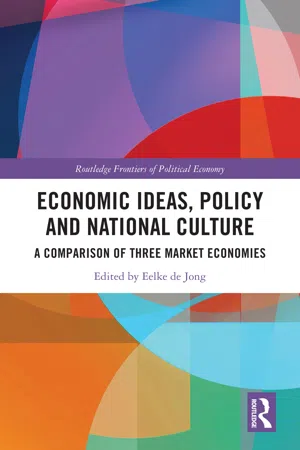1.1 Introduction
The fall of the Berlin Wall marked a fundamental change for many: first, of course, for the inhabitants of the countries on the eastern side of the Iron Curtain. Many hoped for a better life, freedom, and improved material conditions such as better products and housing. Second, the fall of the Berlin Wall had consequences for the debate about the best economic and political system. Many were of the view that the rivalry between the different economic and political systems had been settled in favour of the democratic free market system. The best-known representative of this view is Fukuyama, who in 1989 had already written, ‘The triumph of the West, of the Western idea, is evident first of all in the total exhaustion of viable systematic alternatives to Western liberalism’ (Fukuyama 1989: 3).1 Consequently, those involved in policy advice to the governments of formerly centrally planned economies were of the view that implementing the right institutions would be the best way to go forward. At first, this discussion was about the speed at which new institutions had to be installed. Some wanted to implement a shock therapy (see, among others, Blanchard et al. 1994). Others, Murrell (1995) for example, thought a gradual introduction would be wise because people have to get used to new rules. In a later stage, questions about the characteristics of a market economy became more prominent.
The questions about the best or most appropriate market economy, provoked by the fall of the Berlin Wall, had a significant impact on economic theory. The formerly centrally planned countries had to reform their economies into market economies. It appeared that the market economy was not as universal as claimed by some; almost every industrialized country had its own approach. This stimulated the literature on varieties of capitalism and comparative economics (Albert 1993; Amable 2003; and Hall and Soskice 2001). This literature discusses the differences between economies in terms of institutions and performance. Questions considered are whether subsystems (labour markets, educational systems, financial systems) are complementary, and how historical events have led to the present national systems.
In order to explain the differences between countries, mainstream economists developed an interest in the role of formal institutions as well as the dominant norms and values of a country, region, or group (Alesina and Guiliano 2015; Beugelsdijk and Maseland 2011; and de Jong 2002 and 2009). These dominant norms and values, deemed culture, can be an important factor in explaining the success and failure of countries and of the transition to a market economy (see, e.g., Pejovich 2003). In conclusion, the fall of the Berlin Wall, along with other events such as the Asian values debate and the failure of the International Monetary Fund’s structural reform programmes (see de Jong 2009: Chapter 3), triggered an interest in extending the traditional economic model to include formal institutions and culture in the sense of norms and values.2
Although these developments extended economic models by including non-material elements, they did not affect the position of the academic economist as an impartial observer. One implicitly assumed that economic behaviour is context dependent but did not pay attention to the likelihood that economists’ interpretation of facts might also depend on the situation in which they live and the education they were exposed to. There are those who think that economics as a scientific discipline should stick to the notion of Pareto efficiency. Dani Rodrik, for example, states that:
All that an economist can claim about a market […] is that it yields an efficient allocation of resources in a precise sense: there is no feasible way to make some people richer without making others poorer. Any economist who makes a broader argument about the fairness, justice, or moral worth of markets that is based on economics proper is simply engaged in malpractice.
(Rodrik 2014: 105)
In this book, we take the contrary position and argue that ‘the economic way of thinking is just as value-laden as any other way of thinking about society’ (Foley 2006: xiv). In particular, we study the interaction between economic ideas and the national environment the economists concerned are living in. For this, we investigate the connection between the views on free markets and state intervention held by a country’s dominant economic school, its population, and its politicians. These views on (free) markets will show what these actors value, and what human flourishing entails. As will become clear in the following chapters, the views on markets and on the role of the state are related to the view on values, virtues, and human flourishing. For example, if one expects that each individual is autonomous, i.e., that human beings flourish if...
